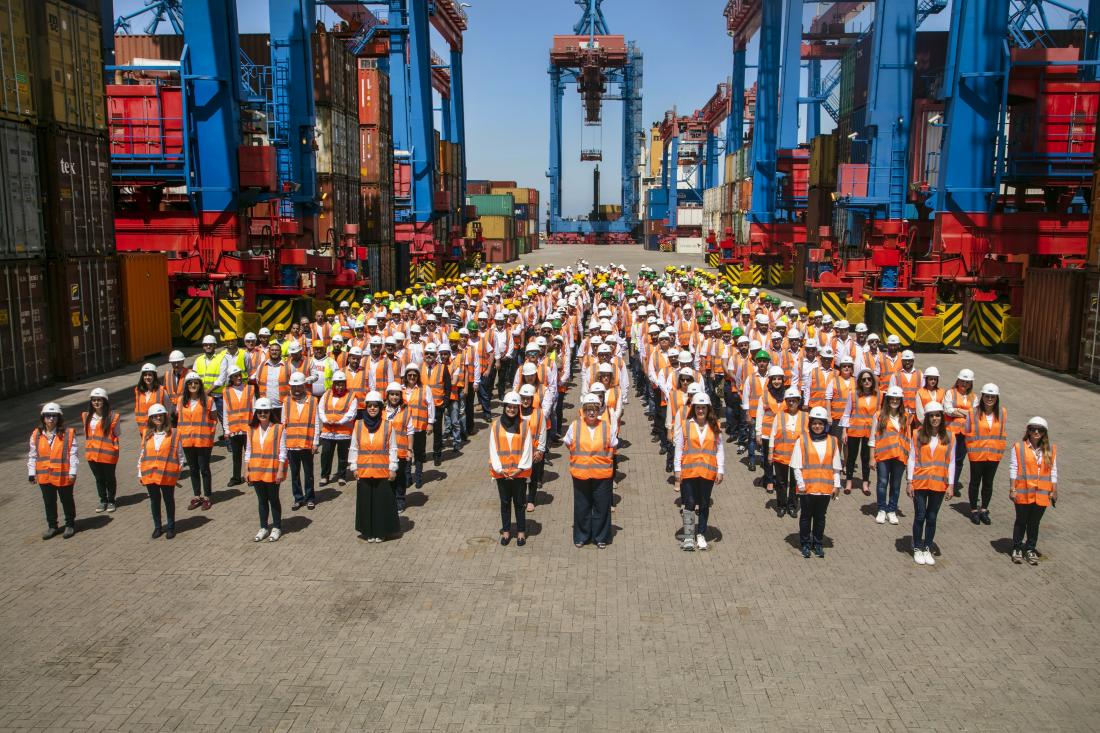“YEP MED is an exceptional opportunity for Lebanese youth development and empowerment”: Ziad Kanaan, president of the Beirut Container Terminal Consortium

In the recent difficult moments of crisis in Lebanon the Beirut Container Terminal Consortium (BCTC) Company running the container terminal of Beirut Port and the Beirut Chamber of Commerce (CCIB) signed a Memorandum of Understanding (MOU) within the framework of the EU-funded YEP MED project. The project aims to provide vocational training and employability for the Mediterranean youth, with a particular focus on NEETs and women. The joint collaboration is an welcome initiative, in especially in the aftermath of the August 4th Beirut blast. In this article we approached the president of the BCTC, Ziad Kanaan, to highlight the main lines of this collaboration.
What can you tell us about the BCTC collaboration with the CCIB within the YEP MED project?
We are extremely pleased to be selected to contribute to such an initiative for the development of the youth, NEET and women, and we are confident we can achieve it successfully. Our team members are knowledgeable and experienced as they have participated in essentially similar tasks locally and abroad. We are eager to put all our available resources at the disposal of CCIB to ensure the success of the YEP MED project and any similar social development projects. Collaboration during the current crisis is critical for the economy and society, especially the improvement in the employability rate, the development of the vocational schools and training centers, as well as the new skills learning opportunities for the youth and women. We are certainly looking forward to the collaboration with CCIB on projects that would not only benefit the Ports industry but also the Economy of Lebanon. We are also prepared to offer apprenticeships in the different operational departments as well as potential hiring later on.
How will this collaboration be implemented on the ground?
The provided training will be in-house and on-the-job. The vocational training stages are: Pre- Assessment, Training Mapping, Suitable Training Programs, assessment.
BCTC Training Programs are a combination of theory and practical tuition and include:
1. Container Terminal Technical Training
a) Equipment Operators
b) Operations Management Planning, Supervision, and Control,
c) Asset Management Planning, Repair and Maintenance,
d) Health and Safety
2. 2. Skills and Competencies Training
a) Behavioural Skills
b) Computer Literacy and Languages
We train the apprentices in each of the selected roles and can tailor the training programmes as required depending on the skills and capabilities of the apprentices as well as accommodating new roles. Close follow-up and evaluation will be carried out to ensure the successful transfer of knowledge to the new apprentices. \
On December 18th 2020, a delegation chaired by the Director General of the CCIB, Rabih Sabra, visited the Beirut Terminal Container Operator at the Port of Beirut to explore and expand their understanding of the activities and seek areas of potential collaboration. Can you describe us this visit’s insights and its importance?
BCTC was excited to host CCIB to explore areas of collaboration, training and development of the Lebanese youth. Being introduced to the CCIB team and seeing their genuine interest in our operations and engagement were truly heartfelt for us. Indeed, it is reassuring that the CCIB is leading in such a positive and professional manner with clear commitment to the economy and social development as witnessed through the YEP MED project.
The organization’s structure, management system, operations and services at the Container Terminal were presented in detail covering the following topics:
1. Health and Safety Safety Comes First
2. Human Resources Core values: Justice, Care and Hope
3. Planning Optimization of the Yard and Vessel Operations
4. Operations Three pillars: Safety, Quality and Efficiency
5. Customer Service Customer Centricity
6. Information Technology Secure, Effective and Compliant Solutions
7. Asset Management Keeping Equipment Well Maintained
A site tour to the facilities was organized to introduce the operational activities covering:
• The Planning and Operations Control room
• The Yard and Quay side including visiting the control cabin of one of the Ship-to-Shore cranes
• The Maintenance Workshop and Spare Parts Warehouse
BCTC Training Programmes were also presented. The in-house trainers were introduced to share their journey at BCTC where they were trained by foreign experts, before undergoing special train-the-trainer intensive program to become certified trainers and train all the operators, at all levels, in Lebanon and abroad. We are a ‘’specialty’’ industry that is not easily accessible to the public by nature given the access restrictions at the port. The visit was therefore essential to gain a thorough understanding of the operation, its role in the port industry and how it can contribute to the YEP MED project especially after having the opportunity to interact with the workforce first hand.
What are your expectations about the YEP MED project input for Lebanon, for Beirut’s Port and especially the youth?
We are confident that the YEP MED project will have a positive impact acting as a catalyst for development and empowerment. It will provide the Lebanese youth with new career possibilities and will equip them with the needed knowledge, skills and abilities to perform and excel at their job duties and tasks. The industry will benefit from essentially an upgrade in the skills and competencies of available candidates. This can only impact positively on work standards.









